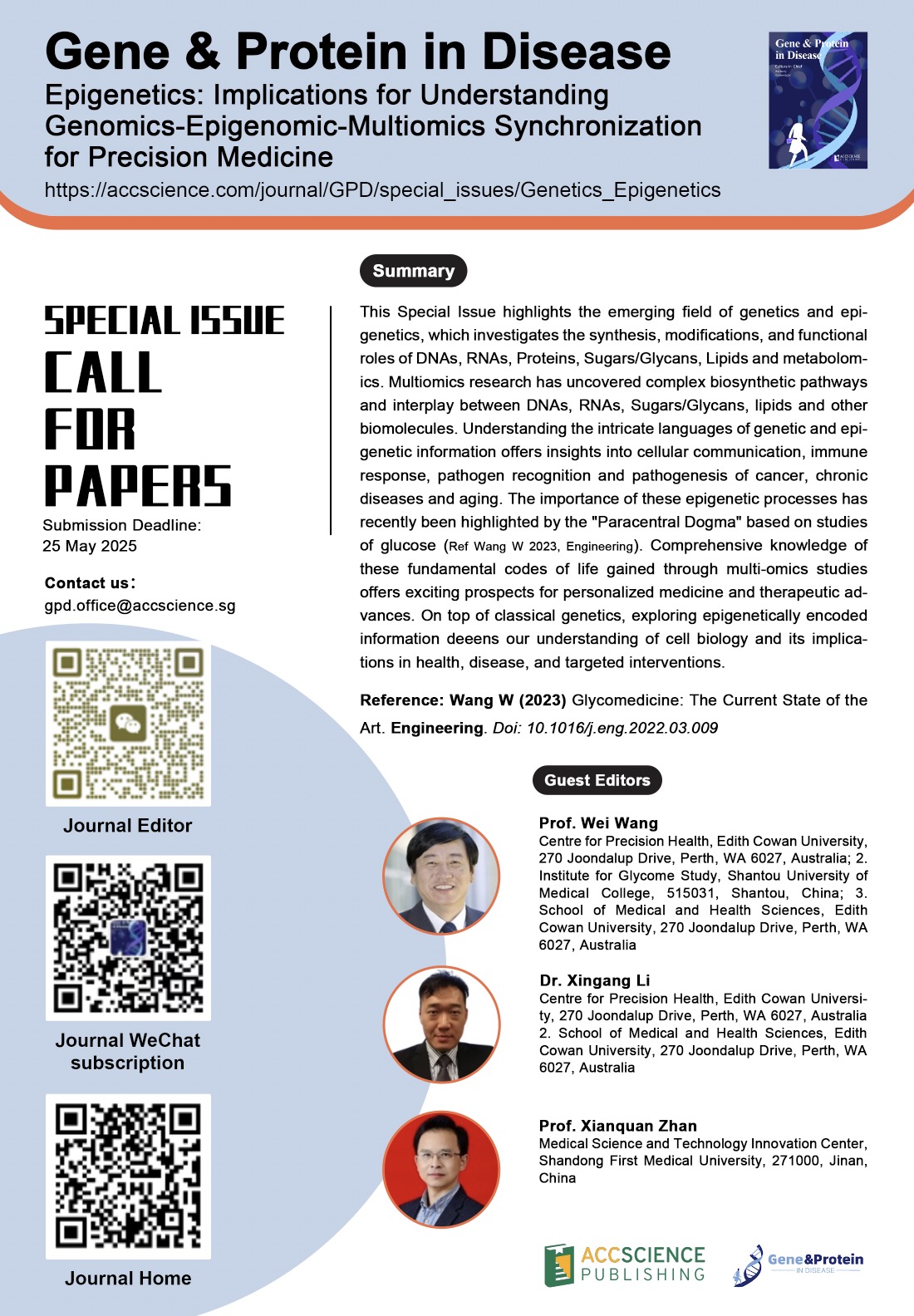Genetics vs Epigenetics: Implications for Understanding Genomics-Epigenomic-Multiomics Synchronization for Precision Medicine
1. Centre for Precision Health, Edith Cowan University, Perth, Australia;
2. Institute for Glycome Study, Shantou University Medical College, Shantou, China;
3. School of Medical and Health Sciences, Edith Cowan University, Perth, AustraliaGlycomics; Public Health; Genetic Epidemiology; Chronic Disorders

Dear Colleagues,
The central dogma of molecular biology, traditionally highlighting nucleic acids and proteins as the main players in genetic information flow, has historically overlooked the crucial involvement of other molecules, e. g., lycolipids and glycoproteins in cellular processes. Glycolipids and glycoproteins play vital roles in cellular signaling and recognition by combining carbohydrates with lipid and protein molecules, respectively. This Special Issue highlights the emerging field of genetics and epigenetics, which investigates the synthesis, modifications, and functional roles of DNAs, RNAs, Proteins, Sugars/Glycans, Lipids and metabolomics. Multiomics research has uncovered complex biosynthetic pathways and interplay between DNAs, RNAs, Sugars/Glycans, lipids and other biomolecules. Understanding the intricate languages of genetic and epigenetic information offers insights into cellular communication, immune response, pathogen recognition and pathogenesis of cancer, chronic diseases and aging. The proposed “paracentral dogma” emphasizes the significance of these epigenetic processes. Comprehensive knowledge of these basic life codes gained through multiomics research presents exciting prospects for personalized medicine and therapeutic advancements. On top of the classical genetics, exploring epigenetic-encoded information deepens our comprehension of cellular biology and its implications in health, disease, and targeted interventions.



